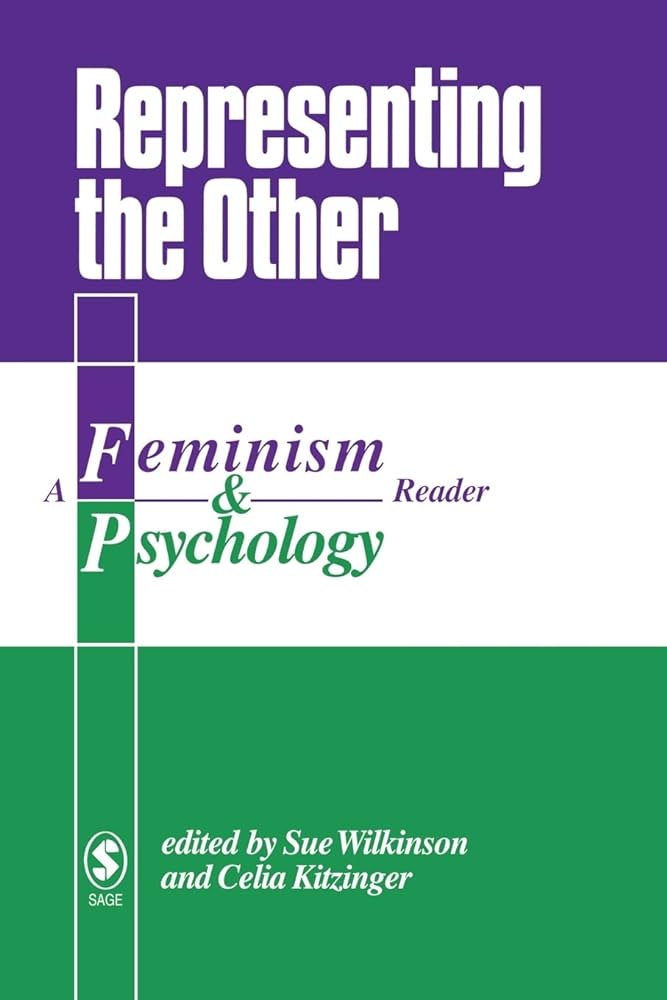Damien W. Riggs和Clemence Due,代孕的批判性方法:生殖欲望和需求
IF 2.2
3区 心理学
Q2 PSYCHOLOGY, MULTIDISCIPLINARY
引用次数: 0
摘要
阿多诺(2003[1997])。奥斯维辛之后还能活着吗?哲学读者(R.利文斯通译)。斯坦福大学出版社。彭树德,K.(2017)。在激进主义运动中自我照顾的体现。https://www。communitypsychology.com/embodiment-as-self-care-in-activist-movements/ Guterstam, A., & Ehrsson, H.(2012)。在灵魂出窍幻觉中否认自己见过真实的身体。《意识与认知》,21。https://doi.org/10.1016/j.concog.2012.01.018克伦兹,A.(未注明日期)。波兰的妻子。http://www.annakrenz.net/polishwife/menu.html Liimakka, S.(2011)。我就是我的身体:女性研究专业学生的客观化、赋权化和身体活动。体育社会学,28,441-460。https://doi。杨建军,刘建军。[j] .农业科学学报(自然科学版)(2019)。后女权主义饮酒文化中无耻的表现[论文报告]。第11届国际临界健康心理学学会双年会议,布拉迪斯拉发,斯洛伐克。马杰夫斯卡,E.(2018)。半边缘地区的弱抵抗:非英雄反公众的出现。在E. Peeren, R. Celikates, J. de Kloet, & T. Poell(主编),全球文化的争论(第49-68页)。帕尔格雷夫麦克米伦。https://doi.org/10.1007/978-3-319-63982-6 Petrakaki, D., Hilberg, E., & Waring, J.(2018)。在授权和自律之间:通过技术自我护理管理患者的行为。社会科学与医学,2013。https://doi.org/10.1016/j.socscimed.2018.07.043 Riley, S., Evans, A., & Robson, M.(2018)。后女权主义与健康:批判心理学和媒体视角。劳特利奇。https://doi.org/10.4324/9781315648613本文章由计算机程序翻译,如有差异,请以英文原文为准。
Damien W. Riggs and Clemence Due, A critical approach to surrogacy: Reproductive desires and demands
Adorno, T. (2003 [1997]). Can one live after Auschwitz? A philosophical reader (R. Livingstone, Trans). Stanford University Press. Espenshade, K. (2017). Embodiment as self-care in activist movements. https://www. communitypsychology.com/embodiment-as-self-care-in-activist-movements/ Guterstam, A., & Ehrsson, H. (2012). Disowning one’s seen real body during an out-of-body illusion. Consciousness and Cognition, 21. https://doi.org/10.1016/j.concog.2012.01.018 Krenz, A. (n.d.). Polish wife. http://www.annakrenz.net/polishwife/menu.html Liimakka, S. (2011). I am my body: Objectification, empowering embodiment, and physical activity in women’s studies students’ accounts. Sociology of Sport Journal, 28, 441–460. https://doi. org/10.1123/ssj.28.4.441 Mackiewicz, A. (2019, July 15–17). The performance of shamelessness in postfeminist drinking cultures [Paper presentation]. 11th Biennial Conference of the International Society of Critical Health Psychology, Bratislava, Slovakia. Majewska, E. (2018). Weak resistance in semi-peripheries: The emergence of non-heroic counterpublics. In E. Peeren, R. Celikates, J. de Kloet, & T. Poell (Eds.),Global cultures of contestation (pp. 49–68). Palgrave Macmillan. https://doi.org/10.1007/978-3-319-63982-6 Petrakaki, D., Hilberg, E., & Waring, J. (2018). Between empowerment and self-discipline: Governing patients’ conduct through technological self-care. Social Science & Medicine, 213. https://doi.org/10.1016/j.socscimed.2018.07.043 Riley, S., Evans, A., & Robson, M. (2018). Postfeminism and health: Critical psychology and media perspectives. Routledge. https://doi.org/10.4324/9781315648613
求助全文
通过发布文献求助,成功后即可免费获取论文全文。
去求助
来源期刊

Feminism & Psychology
Multiple-
CiteScore
3.30
自引率
11.10%
发文量
51
期刊介绍:
Feminism & Psychology provides a forum for debate at the interface between feminism and psychology. The journal"s principal aim is to foster the development of feminist theory and practice in – and beyond – psychology. It publishes high-quality original research, theoretical articles, and commentaries. We are interested in pieces that provide insights into the gendered reality of everyday lives, especially in relation to women and girls, as well as pieces that address broader theoretical issues. Feminism & Psychology seeks to publish work from scholars, researchers, activists and practitioners at all stages of their careers who share a feminist analysis of the overlapping domains of gender and psychology.
 求助内容:
求助内容: 应助结果提醒方式:
应助结果提醒方式:


